Palestinian territory- The Israeli army’s repeated killings of Palestinian civilians by deliberately running them over alive with military vehicles was vehemently denounced by Euro-Med Human Rights Monitor on Sunday, as was the widespread destruction of civilian property. These crimes are part of Israel’s genocide against Palestinians in the Gaza Strip, the rights group said, ongoing since 7 October 2023.
Euro-Med Monitor documented the Israeli army’s killing of a Palestinian man called Jamal Hamdi Hassan Ashour (62) who was deliberately run over in Gaza City’s Al-Zaytoun neighbourhood on 29 February after he was arrested. The father of five was subjected to harsh interrogation by members of the Israeli army, who bound his hands with plastic zip-tie handcuffs before running him over with a military vehicle from the bottom to the top of his body.
Ashour's home was targeted by Israeli airscrafts, killing his nephew, before the family had to evacuate it.
The incident occurred on the main Salah al-Din Street in the Zaytoun neighbourhood, according to eyewitnesses who spoke to the Euro-Med Monitor team. Israeli forces besieged Ashour and his wife inside their home, before arresting him and transferring him to a building in the neighbuorhood designated for interrogating detainees.
Israeli soldiers restrained the victim’s hands with plastic shackles before they crushed him, and tramped on his body from the legs up, confirming that he was alive during the incident. To guarantee thorough and complete crushing, the victim was placed on asphalt rather than in an adjacent sandy area.
The victim’s mutilated body and the surrounding area bear obvious signs that a military bulldozer or tank was present. It appears that the victim was purposefully stripped of his clothes, as he was seen wearing only his underpants at the time of his death.
The ramming operation occurred before the Israeli army withdrew to the outskirts of the Zaytoun neighbourhood two days ago, as evidenced by the condition of the entrails and other body parts, which had not yet decomposed when the case was documented.
Another documented incident took place on 23 January, when an Israeli tank ran over members of the Ghannam family while they were sleeping in a shelter caravan in the Taiba Towers area of Khan Younis. As a result, a man and his eldest daughter were killed, and his remaining three children and wife were injured. Amina, his 13-year-old daughter, confirmed that her father and older sister were killed when an Israeli tank unexpectedly and repeatedly ran over the caravan, where the family had been sleeping. While her mother and two other siblings survived the attack, Amina experienced extreme pressure in her eyes, nearly losing her sight.
Euro-Med Monitor also documented Israeli tanks and bulldozers running over and crushing displaced people inside their tents in Beit Lahia’s Kamal Adwan Hospital courtyard on 16 December 2023. Several people were killed during the incident, including individuals who were initially injured and did not ultimately survive. The corpses of those who had been previously buried in the courtyard were also crushed in the 16 December incident, stated the rights group.
More recently, a Palestinian family survived a 20 February running attack after Israeli tracks ran over their tent on the shore of the Khan Yunis Sea. A female civilian said that she was shocked by the tank suddenly running over her tent.
In addition, Euro-Med Monitor has documented numerous incidents of Israeli army tanks destroying civilian property, particularly cars, during Israel’s ground incursions into different parts of the Gaza Strip. Most of these tank attacks have targeted vehicles parked in the streets without any military affiliation, indicating the Israeli army’s deliberate and systematic destruction of Palestinian property.
Euro-Med Monitor affirmed that all of these violations are part of a larger Israeli effort to dehumanise every Palestinian in the Gaza Strip, in order to justifiy and normalise the crimes being committed against them. Crushing civilians with tanks is just one of the many cruel ways the Israeli army murders Palestinians in the Gaza Strip, disregarding their humanity, suffering, and dignity. These practices reflect the desire of Israel’s government and military to collectively punish the Palestinian people, with the aim of eliminating, intimidating, and/or harming them physically and psychologically. These crimes come alongside a public incitement campaign by Israeli officials, media figures, and settlers calling for the annihilation of Palestinians in Gaza, and are also a result of the total impunity enjoyed by the perpetrators—evident by the absence of any meaningful action being taken to hold them accountable by any party or at any level.
The human rights organisation warned that the Israeli army has escalated its premeditated murders, extrajudicial executions, and judicial killings against Palestinian civilians since 7 October through direct targeting with snipers, drones, and running operations in various regions of the Gaza Strip. According to Euro-Med Monitor, these actions amount to war crimes and crimes against humanity under the Rome Statute Basic Law of the International Criminal Court (ICC).
There is no justification for the Israeli army to commit these serious crimes, Euro-Med Monitor confirmed. Even its claim that some of the aforementioned acts were directed towards Palestinian fighters does not release Israel from criminal responsibility, seeing as international law protects both civilians and fighters who have given up or lost all means of defense, with the Rome Statute classifying their killing or wounding as war crimes. The Israeli army’s deliberate and widespread destruction of Palestinian property, carried out in an irresponsible manner and without military necessity, also qualifies as a war crime under the Rome Statute.
In parallel to taking all necessary steps to ensure Israel’s accountability for the crimes it commits against the Palestinian people, Euro-Med Monitor reiterated its call for the international community to immediately implement its international obligations to stop the genocide that Israel has been committing against all Palestinians in the Gaza Strip for roughly five months now.
In light of the fact that the ICC has not yet taken any action or filed any charges in relation to the investigations it is supposed to be carrying out into the situation in the Gaza Strip, Euro-Med Monitor expressed deep concern about the ICC Prosecutor’s performance regarding the genocide taking place there. Genocide is one of the most serious international crimes, with catastrophic consequences for civilians. The Court has not said anything about the crimes committed by Israel in the Gaza Strip, even in the face of a plethora of evidence presented by Israeli officials and soldiers themselves, as well as warnings and documentary reports from international organisations, the United Nations and its experts, and the governments of many other nations. The ICC’s last update on the situation in Palestine was posted on 17 November 17 on its official website. This raises serious questions and concerns about its independence and integrity, as well as the extent to which it can perform its duties without becoming politicised or impacted by standards of duality and selective justice.
Euro-Med Human Rights Monitor called for the formation of an independent international investigation committee specialising in Israel’s ongoing military attack on the Gaza Strip. It also urged the international community to enable the work of a separate independent international investigation committee concerned with the Occupied Palestinian Territory, formed in 2021, to carry out its work by ensuring its access to the Strip and opening the necessary investigations into all crimes and violations committed against Palestinians there, including the deliberate killing and extrajudicial execution of civilians.
The rights group also demanded that the Special Rapporteur on extrajudicial, summary, or arbitrary executions visit the Gaza Strip as soon as feasible to look into the illegal killings that fall under the purview of his substantive mandate.

‘He got out of Gaza, but Gaza did not get out of him’: Israeli soldiers returning from war struggle with trauma and suicide
Editor’s note: This story contains details of suicide and violence that some readers may find upsetting.
A 40-year-old father of four, Eliran Mizrahi deployed to Gaza after the deadly Hamas-led attack on Israel on October 7, 2023.
The Israeli military reservist returned a different person, traumatized by what he had witnessed in the war against Hamas in the strip, his family told CNN. Six months after he was first sent to fight, he was struggling with post-traumatic stress disorder (PTSD) back at home. Before he was due to redeploy, he took his own life.
“He got out of Gaza, but Gaza did not get out of him. And he died after it, because of the post-trauma,” his mother, Jenny Mizrahi, said.
The Israeli military has said it is providing care for thousands of soldiers who are suffering from PTSD or mental illnesses caused by trauma during the war. It is unclear how many have taken their own lives, as the Israel Defense Forces (IDF) has not provided an official figure.
One year on, Israel’s war in Gaza has killed more than 42,000 people, according to the health ministry in the strip, with the United Nations reporting that most of the dead are women and children.
The war, launched after Hamas killed 1,200 people and took more than 250 hostage, is already Israel’s longest since the Jewish state was established. And as it now expands to Lebanon, some soldiers say they dread being drafted into yet another conflict.
“A lot of us are very scared of getting drafted again to a war in Lebanon,” an IDF medic who served four months in Gaza told CNN, speaking on condition of anonymity due to the sensitivity of the matter. “A lot of us don’t trust the government right now.”
Israeli authorities – with rare exceptions – have closed off Gaza to foreign journalists unless under IDF escort, making it difficult to capture the full extent of Palestinian suffering or the experiences of soldiers there. Israeli soldiers who fought in the enclave told CNN they witnessed horrors the outside world can never truly comprehend. Their accounts offer a rare glimpse into the brutality of what critics have called Israeli Prime Minister Benjamin Netanyahu’s “forever war,” and the intangible toll it takes on the soldiers who participate.
For many soldiers, the war in Gaza is a fight for Israel’s survival and must be won by any means. But the battle is also taking a mental toll that, due to stigma, is largely hidden from view. Interviews with Israeli soldiers, a medic, and the family of Mizrahi, the reservist who took his own life, provide a window into the psychological burden that the war is casting on Israeli society.
The mental health toll
Mizrahi deployed to Gaza on October 8 last year and was tasked with driving a D-9 bulldozer, a 62-ton armored vehicle that can withstand bullets and explosives.
He was a civilian for most of his life, working as a manager at an Israeli construction company. After witnessing the massacres committed by Hamas, he felt the need to fight, Jenny told CNN.
The reservist spent 186 days in the enclave until he sustained injuries to his knee, followed by hearing damage in February when a rocket-propelled grenade (RPG) struck his vehicle, his family said. He was pulled out of Gaza for treatment, and in April was diagnosed with PTSD, receiving weekly talk therapy.
His treatment did not help.
“They didn’t know how to treat them (soldiers),” Jenny, who lives in the Israeli Ma’ale Adumim settlement, in the occupied West Bank, said. “They (soldiers) said the war was so different. They saw things that were never seen in Israel.”
When Mizrahi was on leave, he suffered from bouts of anger, sweating, insomnia and social withdrawal, his family said. He told his family that only those who were in Gaza with him could understand what he was going through.
“He always said, no one will understand what I saw,” his sister, Shir, told CNN.
Jenny wondered if her son killed someone and couldn’t handle it.
“He saw a lot of people die. Maybe he even killed someone. (But) we don’t teach our children to do things like this,” she said. “So, when he did this, something like this, maybe it was a shock for him.”
Guy Zaken, Mizrahi’s friend and co-driver of the bulldozer, provided further insight into their experience in Gaza. “We saw very, very, very difficult things,” Zaken told CNN. “Things that are difficult to accept.”
The former soldier has spoken publicly about the psychological trauma endured by Israeli troops in Gaza. In a testimony to the Knesset, Israel’s parliament, in June, Zaken said that on many occasions, soldiers had to “run over terrorists, dead and alive, in the hundreds.”
“Everything squirts out,” he added.
Zaken says he can no longer eat meat, as it reminds him of the gruesome scenes he witnessed from his bulldozer in Gaza, and struggles to sleep at night, the sound of explosions ringing in his head.
“When you see a lot of meat outside, and blood… both ours and theirs (Hamas), then it really affects you when you eat,” he told CNN, referring to bodies as “meat.”
He maintains that the vast majority of those he encountered were “terrorists.”
“The civilians we saw, we stopped and brought them water to drink, and we let them eat from our food,” he recalled, adding that even in such situations, Hamas fighters would shoot at them.
“So, there is no such thing as citizens,” he said, referring to the ability of Hamas fighters to blend with civilians. “This is terrorism.”
When soldiers do encounter civilians, however, many face a moral dilemma, according to the IDF medic who spoke to CNN anonymously.
There was a “very strong collective attitude” of distrust among Israeli soldiers toward the Palestinians in Gaza, especially at the outset of the war, the medic said.
There was a notion that Gazans, including civilians, “are bad, that they support Hamas, that they help Hamas, that they were hiding ammunition,” the medic said.
In the field, however, some of these attitudes changed “when you actually see Gazan civilians in front of your eyes,” they said.
The IDF has said that it does all it can to minimize civilian casualties in Gaza, including by sending text messages, making phone calls, and dropping evacuation leaflets to warn civilians ahead of attacks.
Despite this, civilians in Gaza have been repeatedly killed in large numbers, including when sheltering in areas the military itself has designated as “safe zones.”
The mental health toll in Gaza is likely to be enormous. Relief groups and the UN have repeatedly highlighted the catastrophic mental health consequences of the war on civilians in Gaza, many of whom had already been scarred by a 17-year blockade and several wars with Israel. In an August report, the UN said the experiences of Gazans defy “traditional biomedical definitions” of PTSD, “given that there is no ‘post’ in Gaza’s context.”
After Mizrahi took his own life, videos and photos surfaced on social media of the reservist bulldozing homes and buildings in Gaza and posing in front of vandalized structures. Some of the images, which were purportedly posted on his now removed social media accounts, appeared in a documentary that he was interviewed for on Israel’s Channel 13.
His sister, Shir, said she saw a lot of comments on social media accusing Mizrahi of being “a murderer,” cursing at him and replying with unpleasant emojis.
“It was hard,” she said, adding that she tried her best to overlook it. “I know he had a good heart.”
Clearing dead people with debris
Ahron Bregman, a political scientist at King’s College London who served in the Israeli army for six years, including during the 1982 Lebanon War, said the Gaza war is unlike any other fought by Israel.
“It’s very long,” he said, and it is urban, which means soldiers fight among many people, “the vast majority of them are civilians.”
Bulldozer operators are among those who are most directly exposed to the war’s brutality, Bregman said. “What they see is dead people, and they clear them (along) with the debris,” he told CNN. “They go over them.”
For many, the transition from the battlefield back to civilian life can be overwhelming, especially after urban warfare that involves the deaths of women and children, Bregman said.
“How can you put your children to bed when, you know, you saw children killed in Gaza?”
Despite Mizrahi’s PTSD, his family said he agreed to return to Gaza when he was called up again. Two days before he was meant to re-deploy, he killed himself.
In her home, Jenny has dedicated a room to memorialize her late son, with photos from his childhood and working in construction. Among the objects his mother has kept was the cap Mizrahi was wearing when he shot himself in the head, the bullet holes clearly visible.
Mizrahi’s family started speaking out about his death after the IDF did not grant him a military burial, saying he had not been “in active reserve duty.” They later reversed their decision.
The Israeli newspaper Haaretz reported that 10 soldiers took their own lives between October 7 and May 11, according to military data obtained by the newspaper.
Asked by CNN about the number of suicides in the IDF since the war, Uzi Bechor, a psychologist and commander of the IDF’s Combat Response Unit, said the medical corps is not allowed to provide a figure, and the military sees the suicide rate as largely unchanged.
“The suicide rate in the army is more or less stable in the last five or six years,” Bechor said, noting that it has in fact been falling over the past 10 years.
Even if the number of suicides is higher, he said, the ratio so far “is quite the same from the previous year because we have more soldiers.”
“It doesn’t mean that there is a trend of more suicide,” Bechor told CNN.
He didn’t provide CNN with the number of suicides or their rate. “Every case for us is heartbreaking,” he said.
Still, more than a third of those removed from combat are found to have mental health issues. In a statement in August, the Israeli defense ministry’s rehabilitation division said that every month, more than 1,000 new wounded soldiers are removed from fighting for treatment, 35% of whom complain about their mental state, with 27% developing “a mental reaction or post-traumatic stress disorder.”
It added that by the end of the year, 14,000 wounded fighters will likely be admitted for treatment, approximately 40% of whom are expected to face mental health issues.
HOW TO GET HELP
In the US: Call or text 988, the Suicide & Crisis Lifeline.
Globally: The International Association for Suicide Prevention and Befrienders Worldwide have contact information for crisis centers around the world.
More than 500 people die by suicide in Israel and over 6,000 others attempt suicide every year, according to the country’s ministry of health, which notes that “there is under-reporting of approximately 23% in the numbers mentioned.”
In 2021, suicide was the leading cause of death among IDF soldiers, the Times of Israel reported, citing military data that showed at least 11 soldiers had taken their own lives that year.
Earlier this year, the ministry of health sought to “debunk rumors of rising suicide rates since October 7,” saying that the reported cases are “isolated incidents in the media and in social media.” Without providing numbers, the ministry said that there was a “decrease in suicide in Israel between October and December in comparison with the same months in recent years.”
Bregman, the Lebanon war veteran, said that PTSD and other mental health issues are now easier to talk about than in the 1970s and 1980s thanks to the diminishing stigma. Still, he said, the soldiers coming out of Gaza will “carry (their experiences) for the rest of their lives.”
The IDF medic who spoke to CNN said that there is a mental health officer designated to every unit of the army during and after deployment. The impact of the war nonetheless persists, the medic said, with soldiers as young as 18 suffering from mental trauma in Gaza. They would often cry or would appear emotionally numb, the medic added.
Normalizing the abnormal
Bechor, the IDF psychologist, said that one of the ways the military helps traumatized troops resume their lives is to try to “normalize” what they went through, partly by reminding them of the horrors committed on October 7.
“This situation is not normal for human beings,” Bechor said, adding that when soldiers come back from the battlefield with PTSD symptoms, they ask: “How do I get back home after what I saw? How do I get to engage with my kids after what I saw?”
“We try to normalize it and to help them remember their values and why did they go there (to Gaza),” he told CNN.
For the tens of thousands of Israelis who volunteered or were called up to fight, the war in Gaza was seen not only seen as an act of self-defense but as an existential battle. That notion was touted by top Israeli political and military leaders, as well as Israel’s international allies.
Netanyahu has described Hamas as “the new Nazis” and US President Joe Biden has said that the “ancient hatred of Jews” endorsed by the Nazis was “brought back to life” on October 7.
The external threats to their country unified many Israelis, putting on hold domestic political squabbling that had for months divided society. Meanwhile, the suffering of Palestinians has largely been absent from Israeli television screens, which are dominated by news about the hostages in Gaza.
After the Hamas attacks, polls showed that most Israelis supported the war in Gaza, and did not want their government to halt the fighting even while negotiating to release the kidnapped hostages. On the one-year anniversary of the October 7 attack, a survey published by the Israel Democracy Institute found that only 6% of Israelis think the war in Gaza should be stopped due to the “the great cost in human life.”
Some soldiers, however, couldn’t rationalize the horrors they had seen.
When he returned from Gaza, Mizrahi often told his family that he felt “invisible blood” coming out of him, his mother said.
Shir, his sister, blames the war for her brother’s death. “Because of the army, because of this war, my brother is not here,” she said. “Maybe he didn’t die from a bullet (in combat) or an RPG, but he died from an invisible bullet,” she added, referring to his psychological pain.
The editor’s note on this story has been updated.
What is Post-traumatic stress disorder (PTSD)? PTSD is a mental health condition caused by very stressful, frightening or distressing events, according to the UK National Health Service. Someone with PTSD often relives the traumatic event through nightmares and flashbacks, and may experience feelings of isolation, irritability and guilt. PTSD can develop immediately after someone experiences a disturbing event, or it can occur weeks, months or even years later.

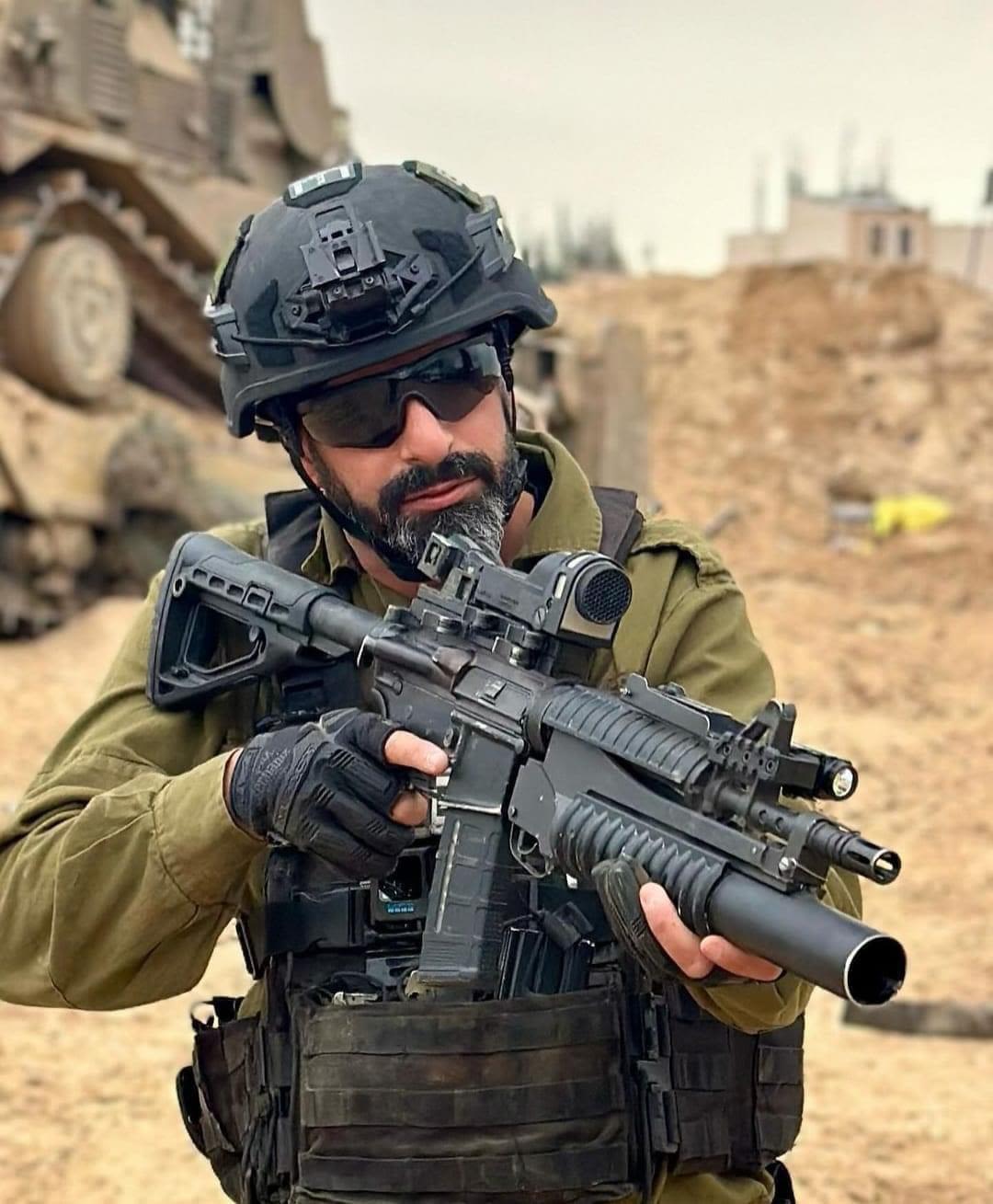
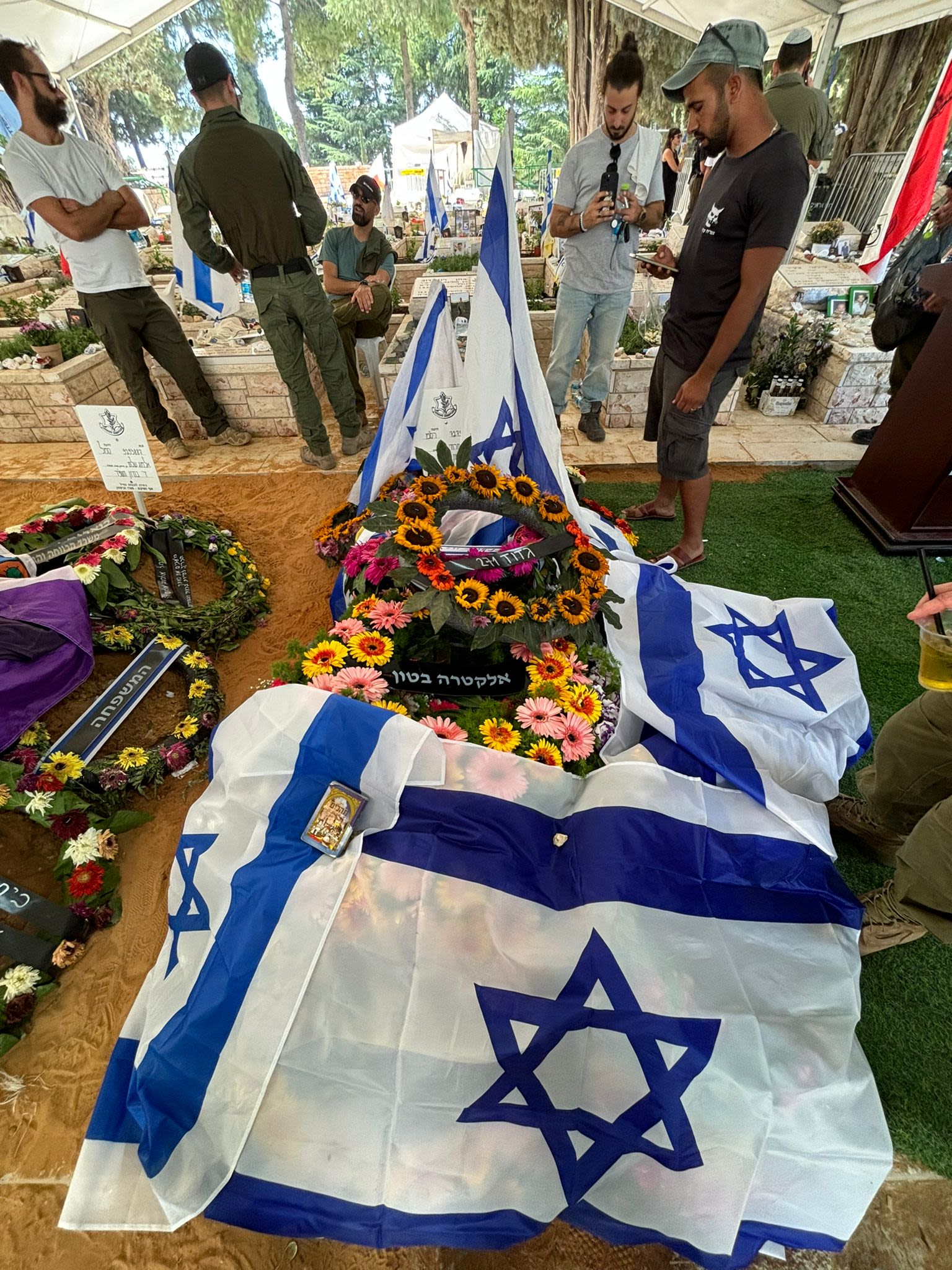
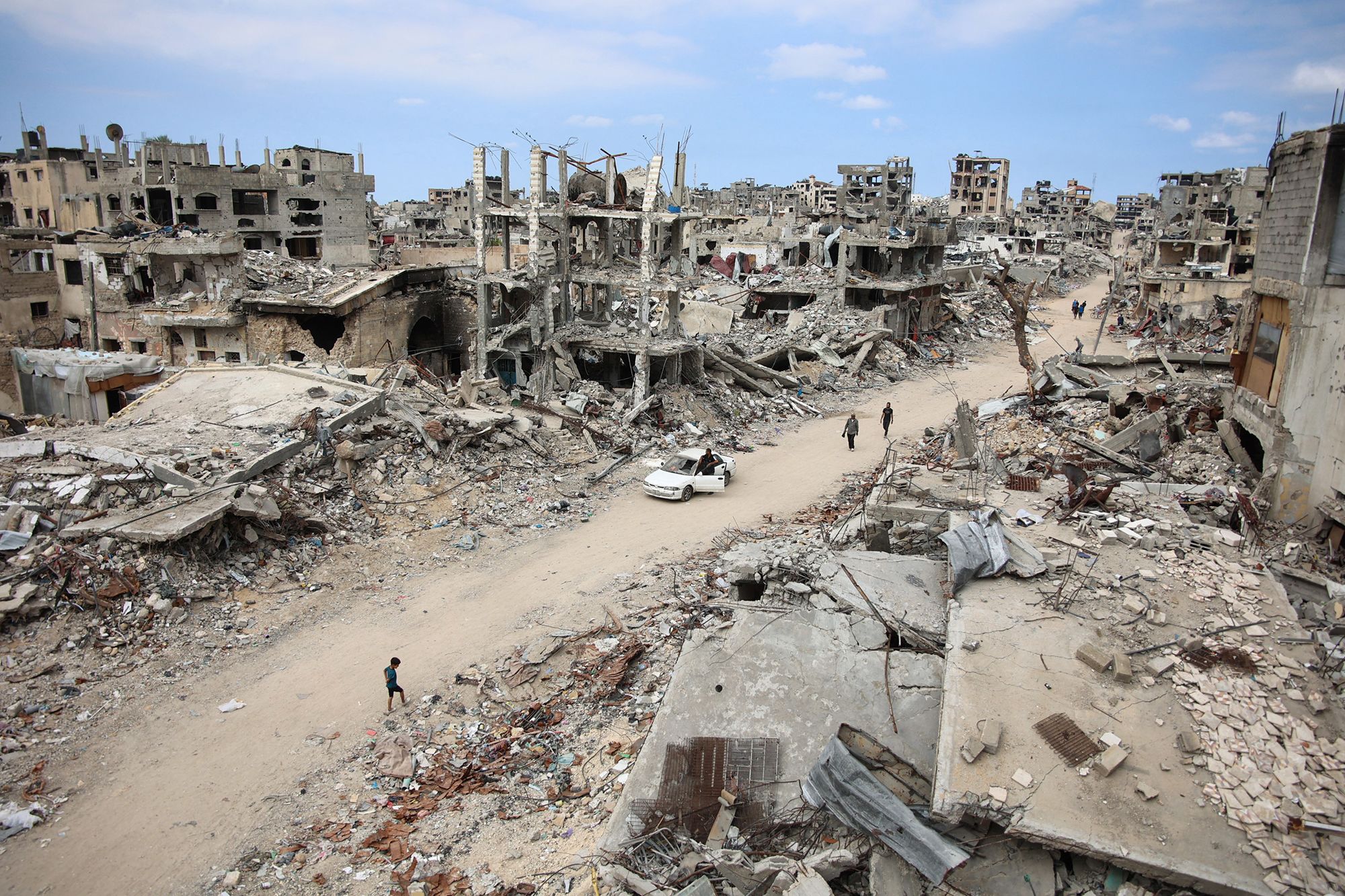
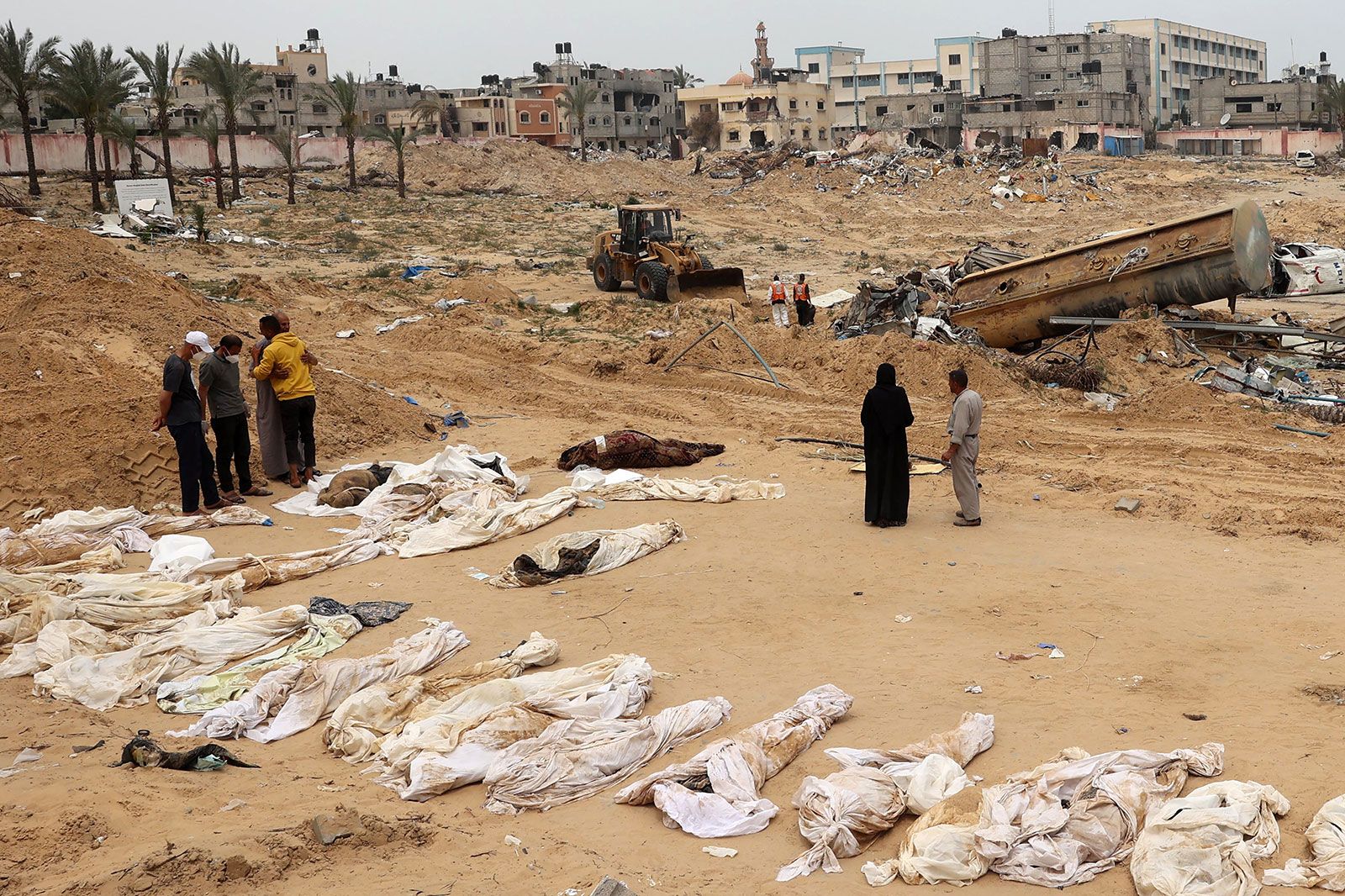
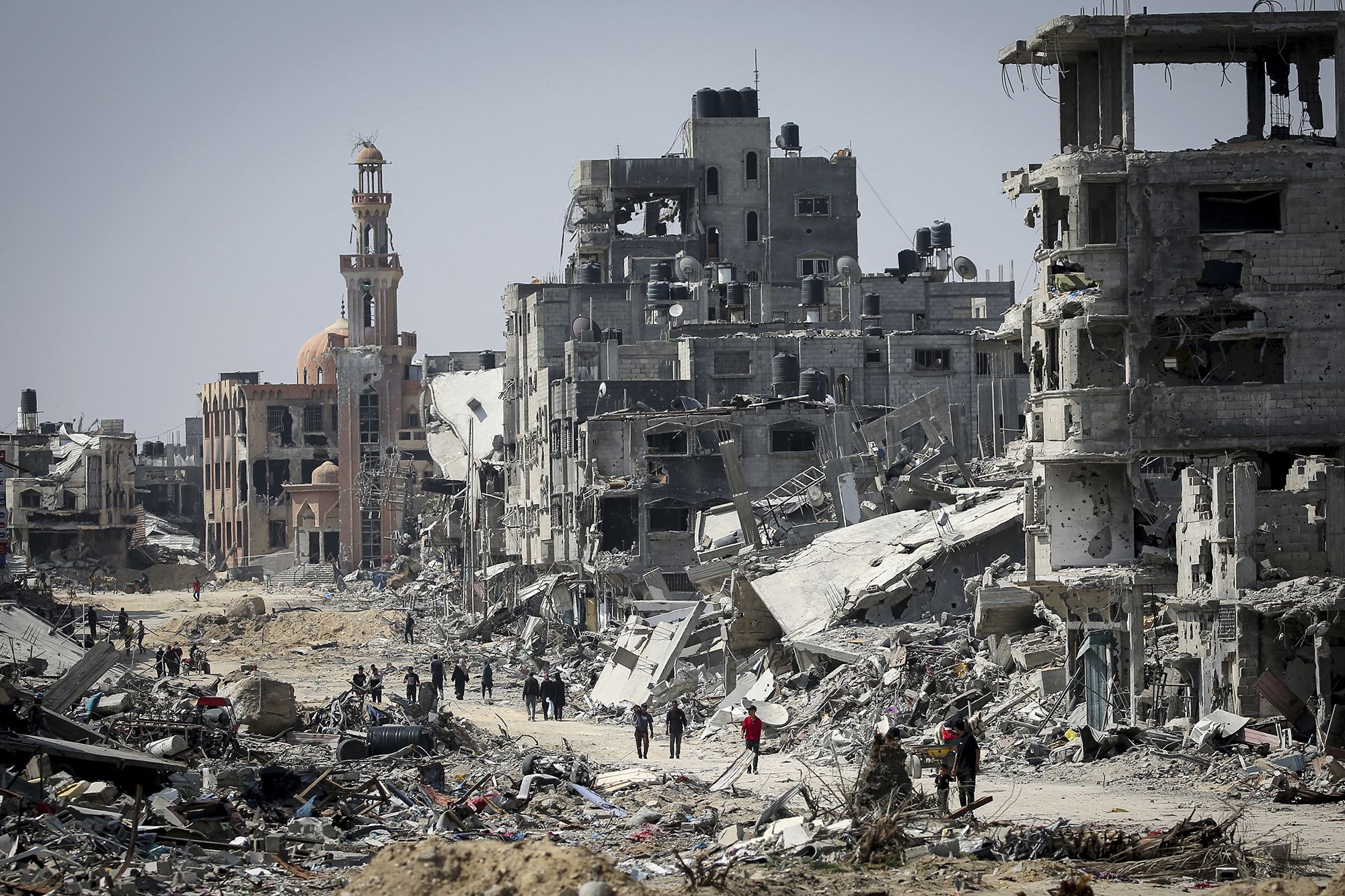
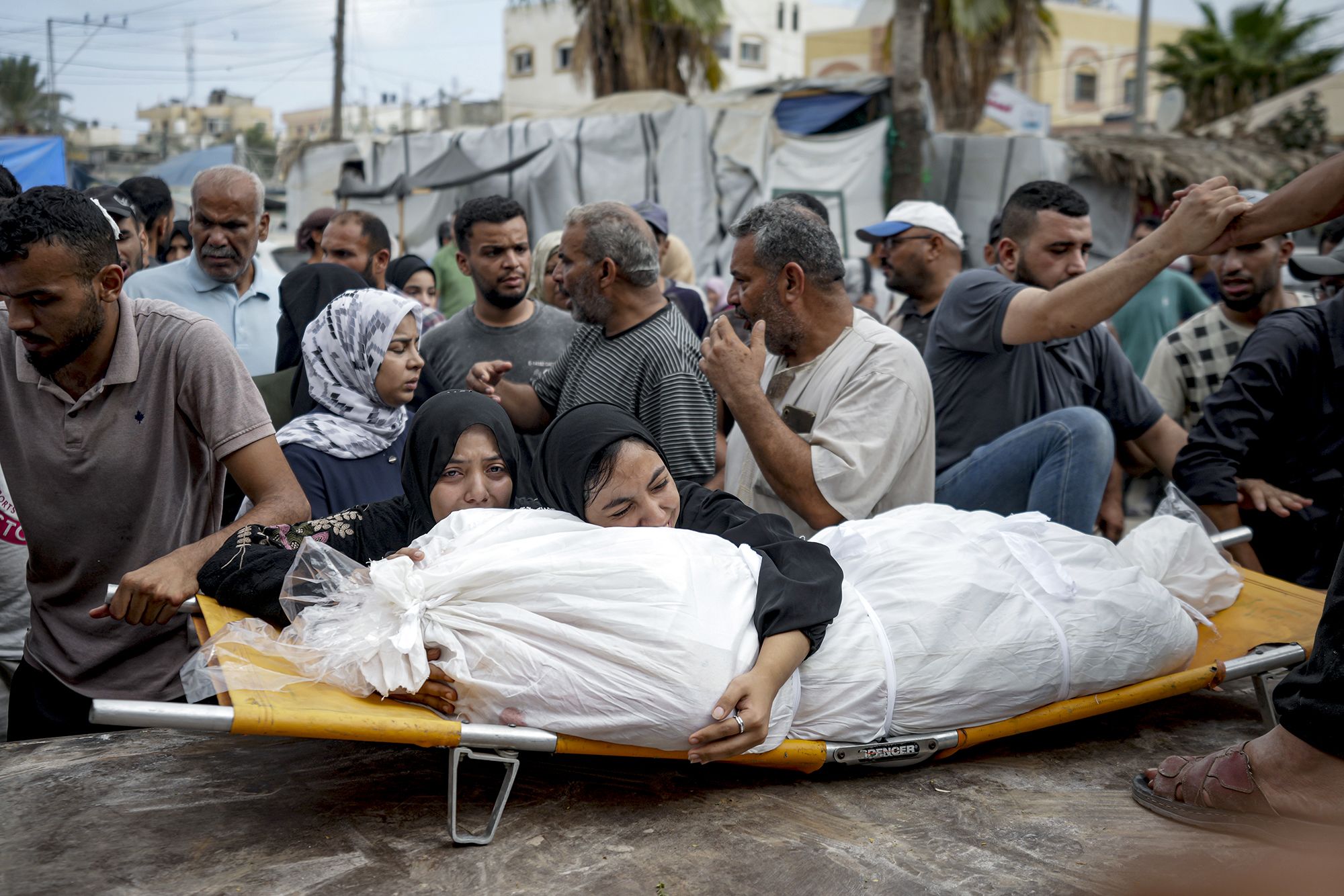

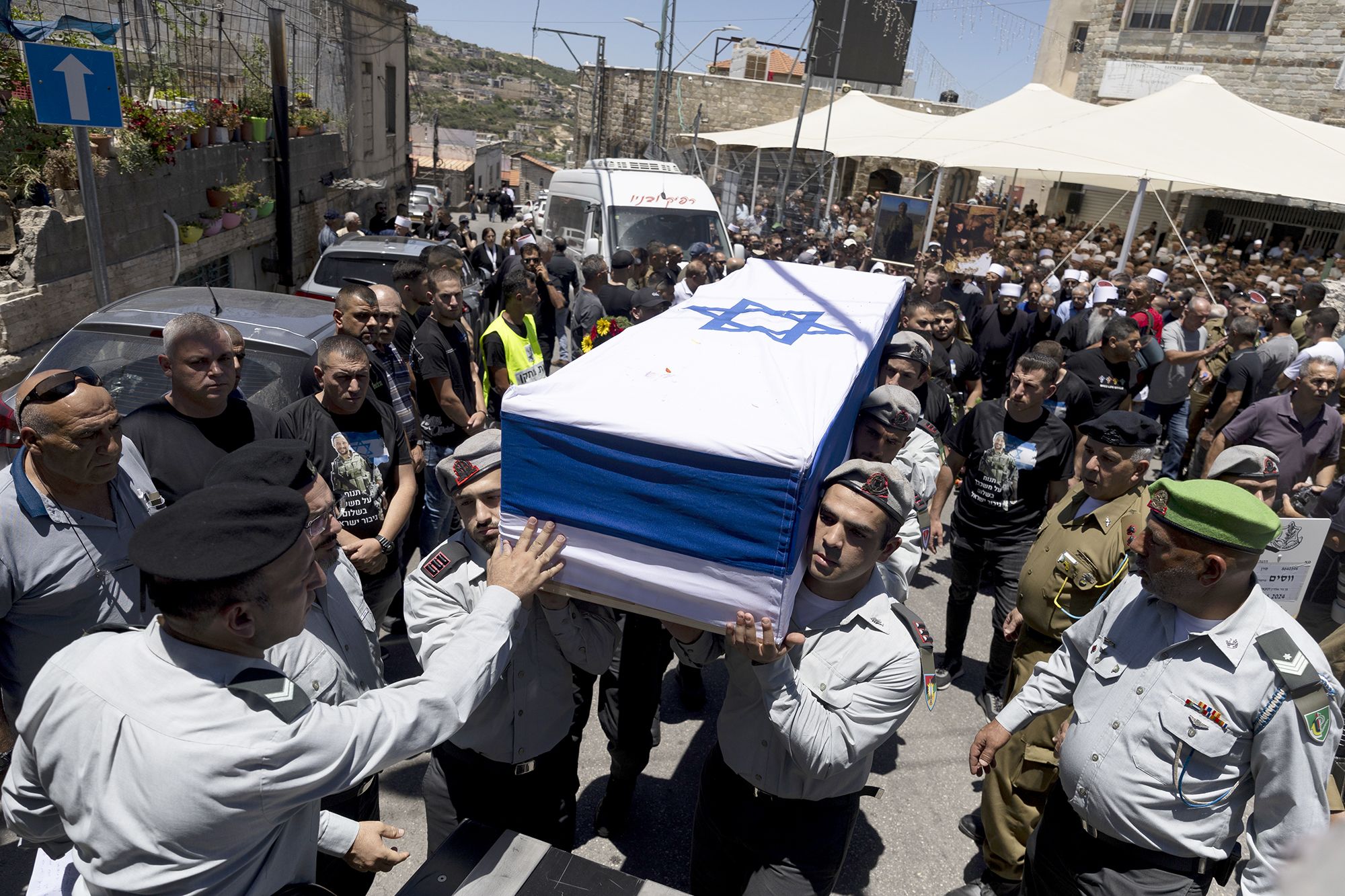
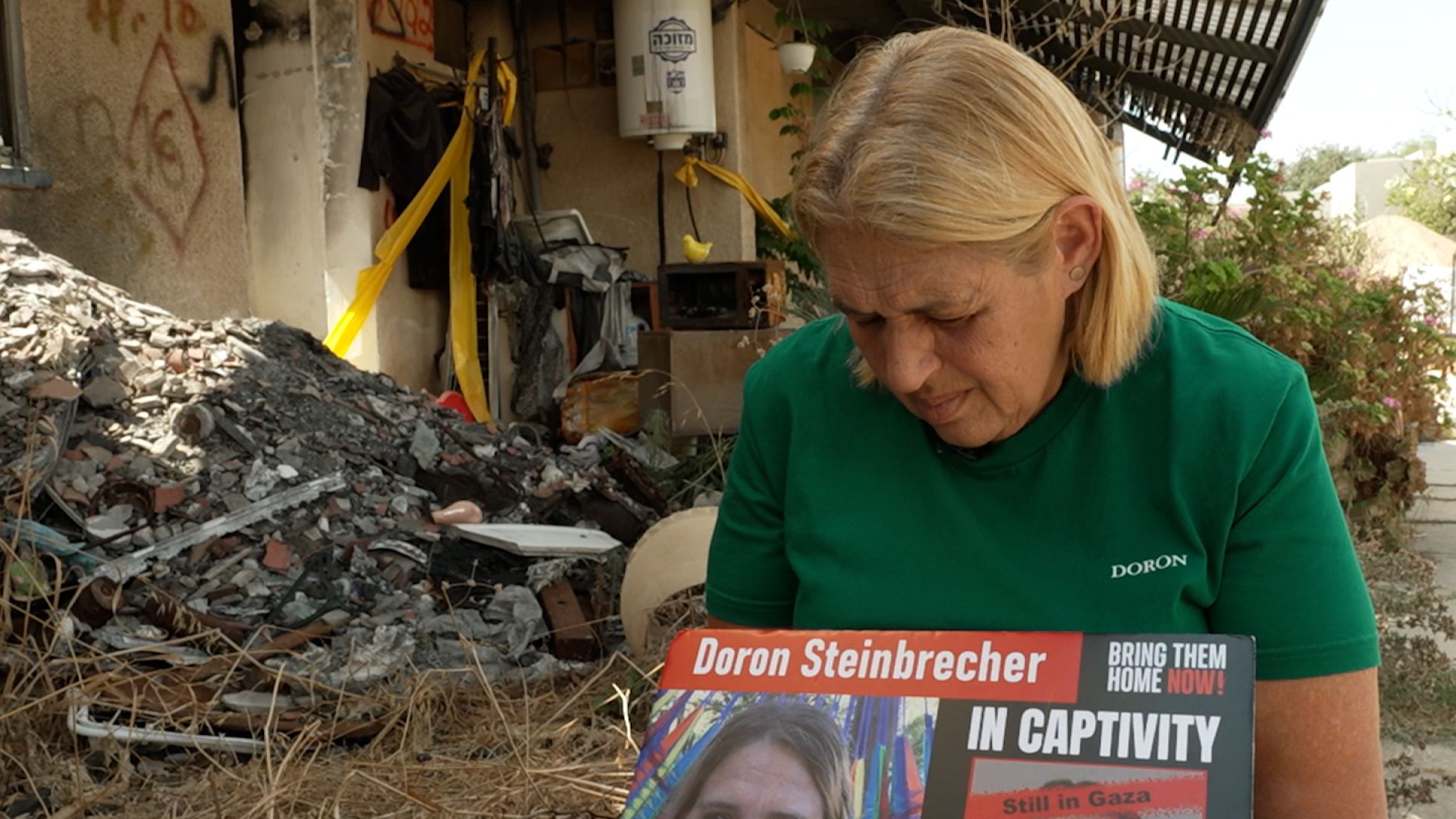



Geen opmerkingen:
Een reactie posten